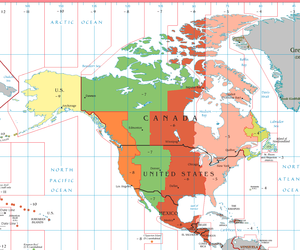Mountain Standard Time Zone
| Mountain Time Zone | |
|---|---|

MST or UTC−07
|
|
| UTC offset | |
| MST | UTC−7:00 |
| MDT | UTC−6:00 |
| Observance of DST | |
| DST is observed in certain regions of this time zone between the 2nd Sunday in March and the 1st Sunday in November. | |
| DST ended | 6 Nov 2016 |
| DST begins | 12 Mar 2017 |
The Mountain Time Zone of North America keeps time by subtracting seven hours from Coordinated Universal Time (UTC), during the shortest days of autumn and winter (UTC−7), and by subtracting six hours during daylight saving time in the spring, summer, and early autumn (UTC−6). The clock time in this zone is based on the mean solar time at the 105th meridian west of the Greenwich Observatory. In the United States, the exact specification for the location of time zones and the dividing lines between zones is set forth in the Code of Federal Regulations at 49 CFR 71.
In the United States and Canada, this time zone is generically called Mountain Time (MT). Specifically, it is Mountain Standard Time (MST) when observing standard time (fall and winter), and Mountain Daylight Time (MDT) when observing daylight saving time (spring and summer). The term refers to the fact that the Rocky Mountains, which range from northwestern Canada to the US state of New Mexico, are located almost entirely in the time zone. In Mexico, this time zone is known as the Pacific Zone.
In the United States and Canada, the Mountain Time Zone is one hour ahead of the Pacific Time Zone and one hour behind the Central Time Zone.
In some areas, starting in 2007, the local time changes from MST to MDT at 2 am MST to 3 am MDT on the second Sunday in March and returns at 2 am MDT to 1 am MST on the first Sunday in November.
...
Wikipedia
